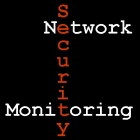OpenBSD Funding Highlights Open Source Development Issues
In mid-March the OpenBSD Journal featured a story on funding OpenBSD SMP development. I found it interesting to get a glimpse into the workings of the open source community when it comes to making important advances in operating systems. The story was really a post of a message Theo made to a mailing list, but the commentary was interesting. It reminded me of the donations to Colin Percival's Freebsd-update project.




